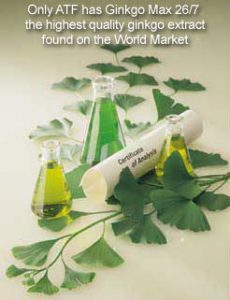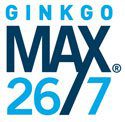By Barry Keate
Barry Keate, has lived with tinnitus over 40 years and has published 150+ research articles on numerous aspects of tinnitus. He is an expert on the condition and a well-known advocate for those with tinnitus.
Readers of our Quiet Times newsletter know that Arches Tinnitus Formulas also publishes a monthly help column, “Ask Barry,” where readers can ask questions about tinnitus. As you’d expect, many of the questions are on common themes. Here we will address one of the more common Ask Barry Topics.
We addressed other common questions last month, and we’ll discuss others in next month’s newsletter.
Arches Tinnitus Formula vs. Store-Bought Ginkgo
Many people write that they are already using Ginkgo biloba and wonder why they should use Arches Tinnitus Formula, which contains ginkgo.
What we know as Ginkgo biloba extract was first produced by the Dr. Willmar Schwabe Company of Germany in the 1960s. They designated their extract EGb 761 and defined the minimum amounts of ginkgo constituents needed to meet this standard. The specification included a minimum of 24% ginkgo flavone glycosides and 6% terpene lactones. This is what we have come to know as Ginkgo biloba 24/6. They also specified a minimum of 2.6% bilobalide, a powerful glutamate antagonist and neuroprotector, and a maximum of 5 ppm (parts per million) ginkgolic acid, a substance that causes allergic reactions.
This standardized extract is not what you get in most over-the-counter ginkgo products in the USA. Consumer Labs has tested most commercially available brands of ginkgo and found that more than 77% of these products “lacked adequate levels of one or more important compounds expected in clinically effective ginkgo.” They also found that 67% of these products contain less than 20% of the specified amount of bilobalide. This means most retail products sold in the US contain less than 0.5% bilobalide.
Furthermore, Ginkgo biloba is a very expensive herb. It takes 50 lbs of ginkgo leaves to make 1 lb of extract. Some unscrupulous manufacturers have found they can substitute a less expensive component, rutin (which comes from buckwheat), for some of the ginkgo leaf and avoid detection by all but the most sophisticated testing techniques. Rutin has no therapeutic benefit, but it is much less expensive than ginkgo.
So how do savvy consumers know what is in these products?
They don’t. Consumers cannot obtain a Certificate of Analysis for over-the-counter ginkgo products. They have to take it on faith that the retailer is providing a product that meets the label specifications.

The Ginkgo biloba used in Arches Tinnitus Formula has always met and even exceeded the specifications for ginkgo extract 24/6. Several years ago, we embarked on a development project to produce a more potent and more highly concentrated ginkgo specifically for people with tinnitus. This required more raw product to produce the extract. Our ginkgo extract is now trademarked as Ginkgo Max 26/7®.
Ginkgo Max 26/7 contains a minimum of 26% ginkgo flavone glycosides and 7% terpene lactones. We also boosted the amount of bilobalide from the standard 2.6% to 3.6%. Keep in mind that most commercially available products contain only about 0.5% bilobalide. This represents a dramatic increase in bilobalide.
Ginkgo flavone glycosides are responsible for the antioxidant activity of ginkgo extract. Damaged inner ear hair cells produce an excess of free radicals, which damage auditory neurons in the auditory nerve. Antioxidants combat this.
Terpene lactones are responsible for increasing blood flow, especially in the microcapillaries that feed the brain, eyes and ears. This causes an increase in fuel and nutrients to the ears, which helps damaged neurons to heal.
Bilobalide is a powerful glutamate antagonist and neuroprotector. Inner ear hair cells also produce excess glutamate when damaged. Glutamate is an excitatory neurotransmitter and leads to excess electrical activity in the auditory nerve and brain. This leads directly to the hyper-excited state we call tinnitus. Bilobalide may be the most important constituent of Ginkgo biloba for reducing tinnitus sound levels.

Read a more detailed examination of the effectiveness of Ginkgo Max 26/7. Also see a complete Certificate of Analysis for our proprietary ginkgo.
Arches Tinnitus Formula also contains zinc picolinate and odor-controlled garlic. Zinc has been shown in many scientific trials to reduce tinnitus. Garlic promotes better circulation and prevents plaque build-up on the walls of blood vessels, so they are healthier and allow increased blood flow.
Arches Tinnitus Formula is the best, most highly concentrated formula for the reduction of tinnitus sound levels. After using products containing inferior ginkgo extract and not getting the relief they expect, our customers stay with Arches once they’ve tried it.
If you have tinnitus, especially if it is due to hearing loss or noise exposure, Arches Tinnitus Formula can help you to reduce tinnitus sound levels, feel better, sleep better, and enjoy a quieter life.
